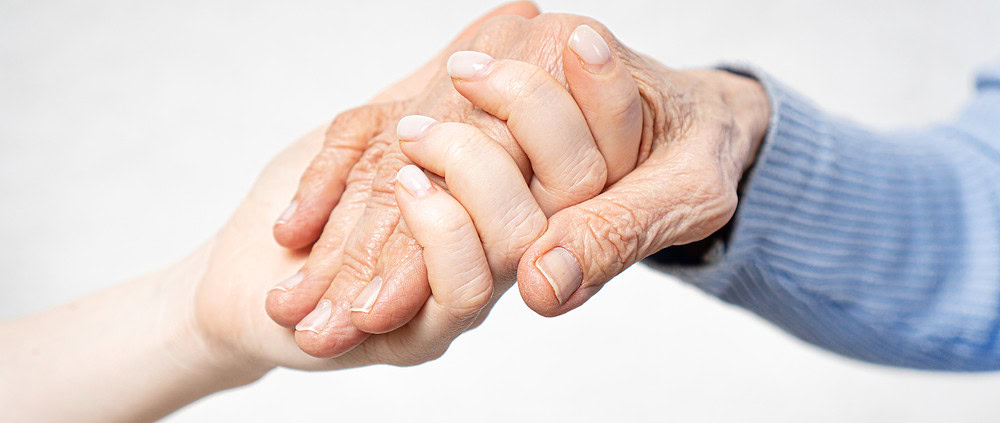Can a Man Hold an Older Woman’s Hand to Help Her?
Answered By Shaykh Dr. Muhammad Fayez Awad
Question
Is it permissible for a man to hold the hand of an elderly woman to help her walk or to save her from falling, for example?
Answer
All praise is due to Allah, Lord of the worlds. Blessings and peace be upon the Messenger of Allah, his Family, and his Companions.
Touching Non-Mahram Women
There is no doubt that Islamic Sacred Law prohibits a man from touching a non-mahram (marriageable) woman, and whoever does this is warned of punishment. Ma‘qil Ibn Yasar reported that the Messenger of Allah (Allah bless him and give him peace) said:
“For one of you to be stabbed in the head with an iron needle is better for him than to touch a woman who is not permissible for him.” [Tabarani]
Exceptions for Necessity
If necessity or genuine need calls for a man to hold the hand of a non-mahram woman and touch her, then there is no harm in this, because necessities permit prohibitions, and necessity is treated according to the extent of the need. This is one of the principles of Islamic Law. Upon reflecting on the Sunna of the Messenger of Allah (Allah bless him and give him peace), one does not hesitate to judge it permissible in such cases.
For instance, Rubayyi‘ Bint Mu‘awwidh said:
“We used to accompany the Prophet (Allah bless him and give him peace) and provide water and treat the wounded and carry the dead back to Madina.” [Bukhari; Nasa’i; Ahmad]
Anas (Allah be pleased with him) reported:
“The Messenger of Allah (Allah bless him and give him peace) used to go out on expeditions with Umm Sulaym and other women from the Ansar who would provide water and treat the wounded” [Muslim; Nasa’i; Abu Dawud; Tirmidhi]
This hadith explicitly mentions accompanying women for the benefit of treating the sick and wounded, which usually involves some physical contact.
Conclusion
If this elderly woman needs you to hold her hand to help her and leaving her could result in harm, there is no sin in what you did. In fact, you will be rewarded for it. Ibn ‘Umar (Allah be pleased with him) reported that a man came to the Prophet (Allah bless him and give him peace) and said:
“O Messenger of Allah, who are the most beloved people to Allah?” The Messenger of Allah (Allah bless him and give him peace) said: “The most beloved people to Allah are those who are most beneficial to the people.” [Tabarani]
Whenever looking is prohibited, touching is also prohibited, but they are permissible for phlebotomy, cupping, and medical treatment. It is also permissible to look for transactions, testimony, teaching, and the like. [Nawawi/Shirbini, Mughni al-Muhtaj]
A doctor is permitted to look and touch what is necessary for treatment… and similarly, anyone who serves a sick man or woman for ablution, cleansing, and the like, as well as rescuing from drowning, burning, and similar situations. [Buhuti, Kashshaf al-Qina]
We ask Allah to make our deeds sincere for His sake and to protect us from trials, both apparent and hidden.
[Shaykh] Dr. Muhammad Fayez Awad
Shaykh Dr. Muhammad Fayez Awad, born in Damascus, Syria, in 1965, pursued his Islamic studies in the mosques and institutes of Damascus. A graduate of the Islamic University of Medina in 1985, he holds a Ph.D. in Islamic Studies from Bahauddin Zakariya University in Pakistan.
He has extensive experience developing curricula and enhancing the teaching of various academic courses, including conducting intensive courses. Shaykh Awad has taught Fiqh, Usul al-Fiqh, Quranic sciences, the history of legislation, inheritance laws, and more at several institutes and universities such as Al-Furqan Institute for Islamic Sciences and Majma‘ al-Fath al-Islami in Damascus.
He is a lecturer at the Sultan Muhammad al-Fatih Waqf University in Istanbul, teaching various Arabic and Islamic subjects, and teaches at numerous Islamic institutes in Istanbul. Shaykh Awad is a member of the Association of Syrian Scholars, a founding member of the Zayd bin Thabit Foundation, a member of the Syrian Scholars Association, and a member of the Academic Council at the Iman Center for Teaching the Sunna and Quran.
Among his teachers from whom he received Ijazat are his father, Shaykh Muhammad Muhiyiddin Awad, Shaykh Muhiyiddin al-Kurdi, Shaykh Muhammad Karim Rajih, Shaykh Usama al-Rifai, Shaykh Ayman Suwaid, Shaykh Ahmad al-Qalash, Shaykh Muhammad Awwama, and Shaykh Mamduh Junayd.
